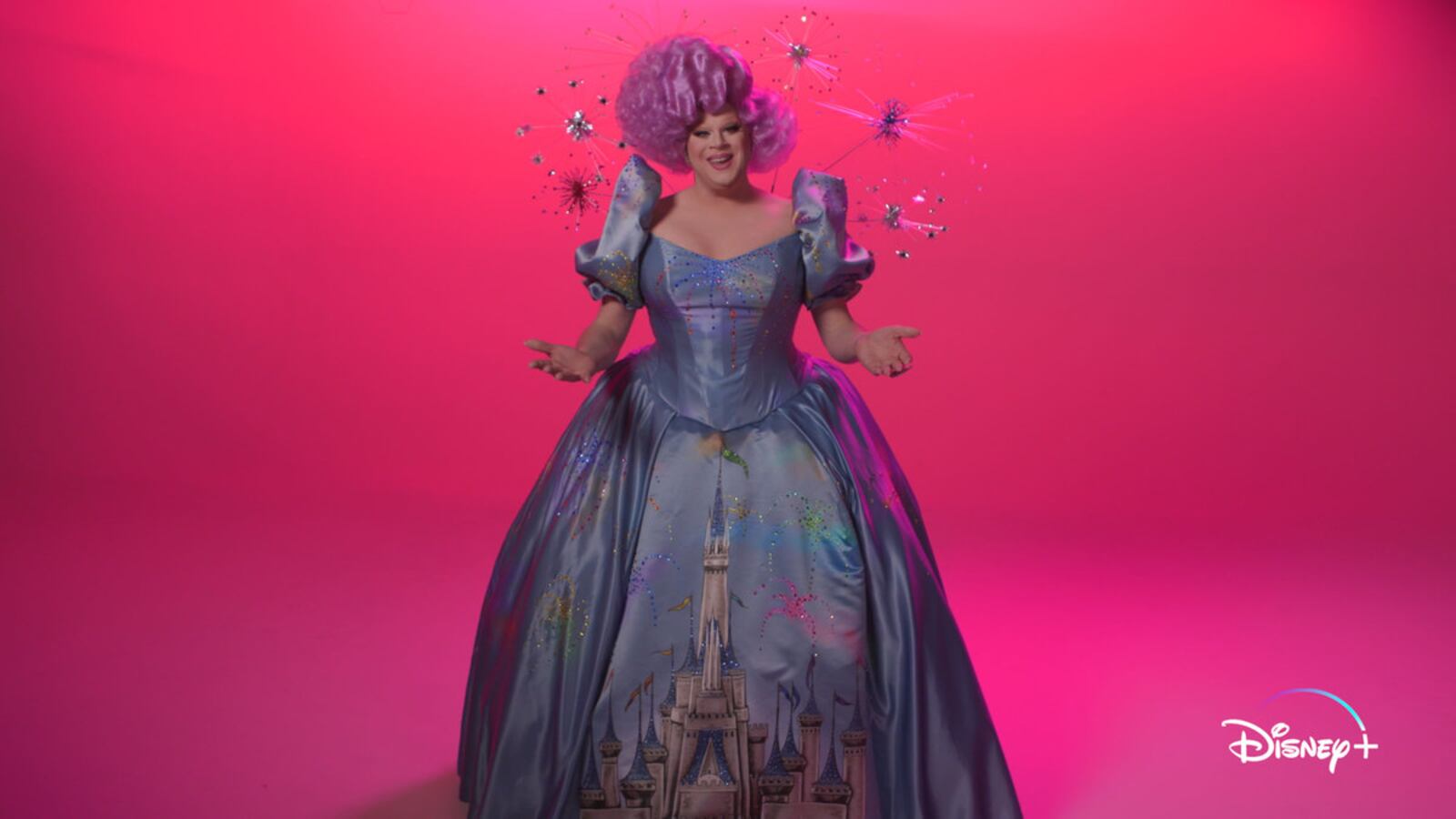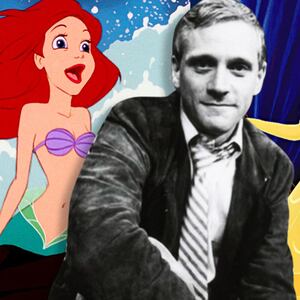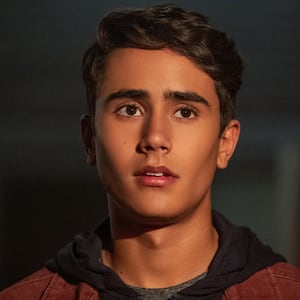There are arguably few things gayer than Disney. But for LGBT Disney fans, the relationship is historically fraught.
The connection is profound. It goes beyond the nightly rendition of “Part of Your World” at the Marie’s Crisis piano bar or the passionate, mimosa-fueled debate about which cartoon villain is the best. For a community whose childhoods are so often defined by being “a funny girl…different from the rest of us” and wondering “when will my reflection show who I am inside?”, the messaging, the whimsical escape, and, for the love of Minnie, the camp of it all made the House of Mouse a safe space.
But that space isn’t always hospitable.
Disney is notorious for, as the decades have gone by, not evolving when it comes to inclusivity.
Reports are that the series Love, Victor was shuffled from Disney+ to Hulu because the gay teen coming out story wasn’t considered “family friendly.” Blink-and-miss-it characters who are purportedly queer are laughably trumpeted by Disney and then maligned by fans for their minisculity.
There are any number of queer-coded characters the LGBT community celebrates and dissects, yet those characters are almost always villains. Fabulous villains, yes, but when there is less than a full spectrum of representation, that becomes a troublesome pattern.
Gay panic, stereotypes, closeting, and equating homosexuality with perversion pervades these films just as much as any celebration of otherness or flamboyance. Mulan may reject societal expectations and exercise her freedom to marry whomever she loves, but try to watch the effeminate young Pinocchio’s fretting over not knowing how to act like “a real boy” through the prism of queer anxiety.
It is only this year that Disney parks have officially and publicly celebrated pride. While rainbow merchandise has existed on a limited, wink-wink level, there was an official rollout this spring across Disney, Pixar, Marvel, and Star Wars brands. Is it progress, or is it financially opportunistic “rainbow capitalism” at work? Some LGBT commentators argue the latter.

On the tide of this tension, however, comes another major step for the company and its public embrace of its LGBT fans. For the first time, Disney is staging a pride concert—albeit a virtual one.
This Is Me: Pride Celebration Spectacular will stream on Disney+ and Facebook Sunday at 8 p.m. ET, and feature celebrities and Disney entertainers performing some of the studio’s most famous songs “reinterpreted through a LGBTQ+ lens,” according to a press release. Alex Newell, Todrick Hall, Hayley Kiyoko, and Kermit the Frog will be among the performers, and the concert will be hosted by RuPaul’s Drag Race alum Nina West.
“It’s allowing us to raise our voice in this classic canon of songs that are a part of our lives,” West told The Daily Beast in a Zoom interview. “These are songs like ‘A Whole New World,’ ‘Part of Your World,’ and ‘Poor Unfortunate Souls.’ These are all part of our musical vernacular. It’s awesome to put a queer lens on it.”
Ahead of Sunday’s concert, we chatted with West about the power of hearing songs that the queer community identifies with performed by queer performers, the evolution of drag as a family-friendly art form, and the history of Disney representation.
So often, these Disney songs are interpreted through the lens of a queer person’s own experience in the world. What does it mean, after that long history of identifying with the message of this music, to actually have them performed as part of a Pride celebration?
We have to remember the legacy of someone like Howard Ashman, who co-wrote many of those songs, who was an out, fearless gay man. He gave so much of Disney its renaissance storyline. The power of the princess changed because of someone who was a member of our community. So not only do we get to reimagine the stories that so many people might have adopted as a cis story, but we also get to celebrate queer artists who gave us this wonderful legacy of moments.
Learning about his life completely changes how you think about those songs as a gay person.
When I was young, I saw myself as Belle. Not for any other reason but because I didn’t fit in. I didn’t belong. I was bookish, I was too smart for my own good. And people wanted to make their mind up for me. I knew what I wanted, but I also saw my difference in Belle. You could adapt your identity to a song dreaming about the person that you love. So I think us being able to reimagine these in a way that is easily consumable and allows us to praise people who are same-gender loving, people who might be nonbinary, and people who are queer is incredible.
These are songs that were always maybe “queer-coded.” But now they’re being performed by queer people.
It’s really powerful. I also think this is going to aid in allowing us one day to see a storyline in a major motion picture animated feature from Disney that features a queer heroine or hero. I think we’re just working towards something we’ve all dreamt of. Instead of going, “I am so much like Cinderella, but I don't know if I’ll ever get my prince,” we're allowing ourselves to say, “Guess what? We also get our happily ever after.”
Instead of assuming that Elsa is a lesbian, we can actually maybe one day have a lesbian Disney Princess.
Correct. Right. Or just have conversations around exactly what we’re talking about through beautiful artwork.
There is such a thing as “Disney gays,” gay people who love Disney and its canon and the whole universe, but it’s also a company that’s been criticized for being too conservative and for insinuating that queerness isn’t family friendly. What do you make of that tension?
I think that we are in a culture and society where we need to allow people to have conversations and understand where and how they fit. I can’t speak to the decisions that were made in the past, but I do think that what’s happening now is very powerful. And I think where we stand is a tremendous opportunity to do something incredible here and do what’s right. I feel like I, as a gay man, am definitely being heard and seen.
That itself is good to hear.
You left out the major component of a Disney game which is part of going to the parks. A really good example would be, for many years, I didn’t see pride merchandise. I think they’re fully embracing it now. I’m here for the evolution, and I’m really proud to be part of the evolution and I'm really proud to watch a company that I have loved for so many years say that I matter. And that sounds crazy.

I understand though.
It’s a huge, giant corporation. It’s so big! But it does come down to a mere factor of the nostalgia, the love, the whimsy, and the story of what I get lost in. The dream of being able to say “once upon a time…” and hopefully I could find my own happily ever after. I do believe I have to be here for the conversation and for the evolution, and I don't want to hold my finger at them and say, “But what about what you did?” Here we are in this moment to allow them to say, “You know what? We’ve learned from our past. Here we are presently. Let’s move forward together to hopefully a really rainbow Technicolor future.”
There’s another part to this, and that’s the evolution of drag. This concert is another example of how this has become a family-friendly art form. Drag is now family inclusive in a way that, even a few years ago, I wouldn’t have imagined.
RuPaul’s Drag Race has, first and foremost, really changed the game. Drag Race has exploded this incredible art form into popular culture and into the zeitgeist. The language is used everywhere. Our influence is seen in crazy reality shows like Real Housewives. But it’s just all over, even in episodes of Disney shows where they’re like 'Oh shade... ’ That’s because of Drag Race.
Now it’s all over, even in the family space.
Drag Race has become a television show that moms and dads like to watch with their kids, and that has only opened the doors for someone like me who has wanted to work in this space, but who started in nightlife. It’s been balancing an 18-and-over show with a, hopefully, eventual ability to work in a space that is for all ages. I think queer families are crying out for content and material that speaks to their values and their beliefs and how they want to raise their kids. It only makes sense to have someone like me be in the space in the first place. Queer parents or parents with queer children deserve and desire content and material that speak to them. It’s really exciting that brands like Nickelodeon and Disney are saying, “We see your value. And here’s this special for you and your family to consume.”

And maybe it can even happen with pearl-clutching conservative outrage in response.
There have been drag queens for at least a decade, if not longer, reading to kids in libraries. This is a long journey. I'm not standing at the front of this. I'm lucky enough to be able to walk through doors that somebody else was knocking on before I could ever do it. This isn’t new. But what is new is this rush of a lot of different resources saying queer voices and queer families matter. That in turn causes people who might not agree or might not believe that queer people exist, to clutch their pearls and/or say, like, this is the end of the world!
Yep, the hysteria.
But actually, we’ve always been here. We’ve always been doing this work. It’s really exciting that we finally get to walk through the door, and get to sing our songs, too. That’s pretty, pretty powerful. It goes further to say that there’s nothing wrong with telling people that they matter. There’s nothing wrong with telling people that they’re worthy. You’re trying to encourage people to be happy and healthy, and tell them that they have a place at the table. When someone tells you that you don’t have a place at the table, that’s where the problem comes in. I never trust anybody that says that we don’t.



